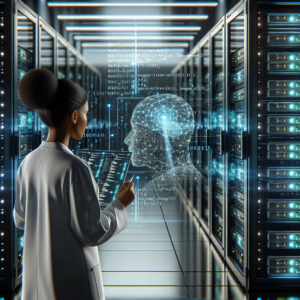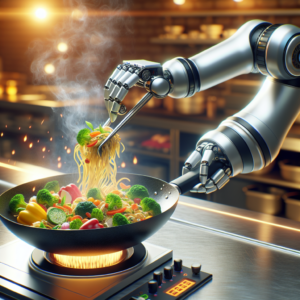A.I. Saved His Life by Discovering New Uses for Old Drugs
In a world where artificial intelligence (A.I.) is becoming increasingly prevalent, its life-saving potential has taken center stage in various fields, including medicine. The story of a man whose life was dramatically altered by A.I. shines a light on the possibilities that arise from technological advancement, particularly in drug discovery and repurposing. Old drugs can have new uses, and A.I. is making it easier to uncover these hidden gems in the pharmaceutical world.
The Challenge of Drug Discovery
Traditionally, the drug discovery process is a lengthy and expensive venture. It can take years, if not decades, for a new drug to go from the lab to the market. With the average cost exceeding billions of dollars and a high failure rate, the pharmaceutical industry is under immense pressure to speed up this timeline and find more effective treatments. This is where A.I. comes into play.
A.I. systems are designed to analyze vast amounts of data quickly and efficiently. By leveraging machine learning algorithms, A.I. can identify patterns and correlations that are often imperceptible to human researchers. This capability is particularly beneficial when searching for potential new uses for existing medications. Instead of starting the drug discovery process from scratch, A.I. can sift through existing drug databases to find candidates for repurposing.
The Man Behind the Breakthrough
The individual at the center of this remarkable innovation is a man who found himself in dire straits. After being diagnosed with a rare ailment, he was faced with limited treatment options. Conventional medicines either failed to provide relief or came with intolerable side effects. Frustrated by his situation, he sought alternative solutions and stumbled upon a research team using A.I. to explore drug repurposing.
This research team was dedicated to discovering new applications for existing medications that had already been approved for other conditions. Their approach not only aimed to expedite the treatment process but also sought to alleviate the burden of developing entirely new drugs. For this man, the hope of finding a solution through A.I. was a lifeline.
How A.I. Works in Drug Repurposing
A.I. operates by analyzing existing data involving drug interactions, patient outcomes, and molecular structures. By leveraging this extensive information, A.I. algorithms can predict which existing drugs might be effective for treating new conditions. This approach is not only efficient but also cost-effective, as it circumvents the need for extensive clinical trials on new drugs.
In the case of our protagonist, the A.I. system identified a few candidate drugs that had previously been used for entirely different ailments. With further research and validation, it was discovered that one of these drugs showed promise for his rare condition. The transformation was remarkable, as this once-unknown treatment began to provide the relief he desperately sought.
The Benefits of A.I. in Medicine
The integration of A.I. into the field of medicine offers several significant benefits:
1. Speed and Efficiency: A.I. can process and analyze data at unprecedented speeds, dramatically reducing the time needed to find new drug candidates.
2. Cost-Effective Solutions: By repurposing existing drugs, A.I. reduces the costs associated with drug development, saving resources for pharmaceutical companies and patients alike.
3. Personalized Medicine: A.I. can analyze genetic and clinical data from individual patients, enabling a more personalized approach to treatment based on their unique biology.
4. Expanding Treatment Options: For patients with rare diseases or conditions with limited treatment options, A.I. can help identify effective therapies that were previously overlooked.
5. Transforming Research: A.I. is revolutionizing the landscape of medical research, allowing scientists to explore uncharted territories and make discoveries that were once deemed impossible.
The Future of A.I. in Healthcare
As this technology continues to evolve, the potential applications of A.I. in healthcare are boundless. From drug discovery to diagnostics and patient care, A.I. is poised to become an indispensable tool in the medical field. The success story of the man who benefited from A.I. illustrates just one instance of how this technology can save lives and improve outcomes.
However, it is essential to navigate this new frontier with caution. Ethical considerations surrounding patient data, algorithm transparency, and the regulation of A.I. tools must be addressed to ensure that these innovations serve the best interests of patients and the healthcare system as a whole.
Conclusion
The intersection of A.I. and healthcare is not just a futuristic dream; it is a present-day reality that holds the promise of transforming patient care. The story of one man’s life being saved by A.I. highlights the power of technology to unlock new possibilities for therapeutic interventions. As A.I. continues to evolve, we can anticipate a future where treatment options are more accessible, personalized, and effective than ever before.
The journey towards improved healthcare through A.I. is just beginning. As the potential of this technology unfolds, the hope is that many more individuals will find relief and healing through the innovative repurposing of drugs that A.I. has helped uncover. In a world where challenges in medicine seem insurmountable at times, A.I. stands as a beacon of hope, illuminating the path to a healthier future.



